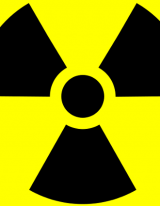Despite the interim agreement on the Iranian nuclear program in November 2013, Iran’s nuclear program remains is arguably one of the greatest emerging challenges to US national and regional security interests. US President Barack Obama has reiterated that a nuclear-armed Iran is unacceptable and that the administration is prepared to take all necessary measures to prevent Iran’s acquisition of nuclear weapons. Nevertheless, despite US efforts, there is a possibility that Iran will have a sophisticated nuclear weapons capability within the next fifteen years. Prudent national security planning requires careful consideration of all possible outcomes.
It is in this spirit that the Atlantic Council’s Brent Scowcroft Center on International Security established a working group to examine strategies deterring and containing a nuclear-armed Iran. After discussing diplomatic and military strategies in its first meeting, the second meeting of the working group on March 11, 2014 focused on the effectiveness and feasibility of financial instruments and cyber strategies. The participants discussed the efficacy of these measures based upondifferent scenarios of potential Iranian nuclearization, emphasizing probable consequences and challenges of their application. In addition, the discussion highlighted long-term trends in the field of cyber competition and world economy, and assessed their impact on the applicability of financial sanctions and cyber strategies as part of the US nuclear deterrence strategy.
The working group’s findings will culminate in a series of publications by Scowcroft Center Nonresident Senior Fellow Matthew Kroenig, due to be rolled out in the Spring.
